This website uses cookies so that we can provide you with the best user experience possible. Cookie information is stored in your browser and performs functions such as recognising you when you return to our website and helping our team to understand which sections of the website you find most interesting and useful.
Vance Center Spotlights Judicial Independence and Access to Justice During World Law Congress
May 2025The Vance Center co-hosted two panel discussions and organized meetings with legal and judicial leaders in Santo Domingo.
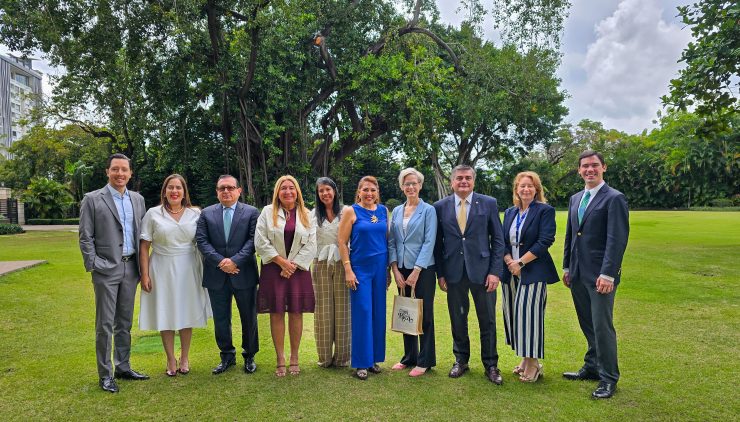
Vance Center Associate Executive Director Jaime Chávez Alor (left) met with representatives from Latin American judicial associations and the UN Special Rapporteur on the independence of judges and lawyers (fourth from right) in Santo Domingo, Dominican Republic. Photo credit: Vance Center
Spotlight on Judicial Independence Threats and Best Practices in Latin America
The Vance Center and the Federación Latinoamericana de Magistrados (FLAM) kicked off a full week of activities with a panel discussion examining the state of judicial independence across Latin America at the World Jurist Association’s World Law Congress in Santo Domingo, Dominican Republic.
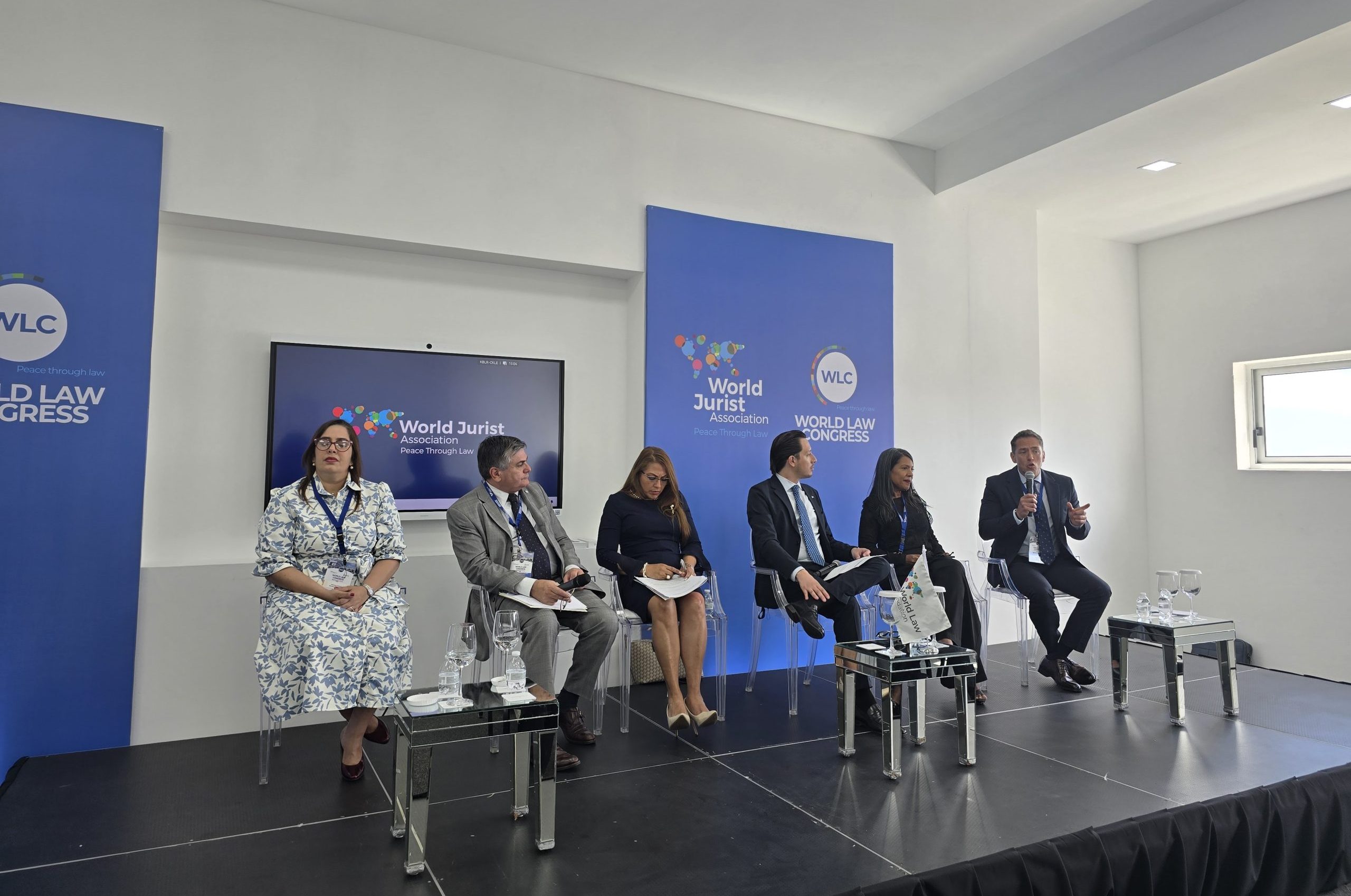
Vance Center Associate Executive Director Jaime Chávez Alor (third from right) moderates a panel on judicial independence in Latin America during the World Law Congress. Photo credit: Vance Center
The May 6 session, “Challenges and Best Practices of the Latin American Judiciary,” brought together leading figures from national judicial associations and regional legal institutions, as well as academics, private lawyers, and civil society members from around the world to examine growing threats to judicial autonomy and identify strategies to strengthen institutional resilience.
Vance Center Associate Executive Director Jaime Chávez Alor moderated the panel featuring speakers Judge Marcelo Gallo Tagle, President of FLAM; Judge Elka Reyes Olivo, Vice President of FLAM; Judge Rosanna Vásquez Febrillet, President of the Association of Dominican Judges for Democracy; Judge Adriana Orocú, President of the Costa Rican Judicial Association; and Mexican litigator Moises Castro Pizaña.
Panelists examined common patterns of judicial interference and instability, including political pressure, lack of structural safeguards, and institutional weaknesses that undermine judicial independence. The discussion also highlighted successful approaches to reinforce judicial governance and promote international standards in Latin America, ranging from civic engagement and legal reform to strategic use of international partnerships.
The conversation concluded with an urgent call for legal communities across the Americas to work collectively to defend judicial independence and rebuild public trust in the judiciary.
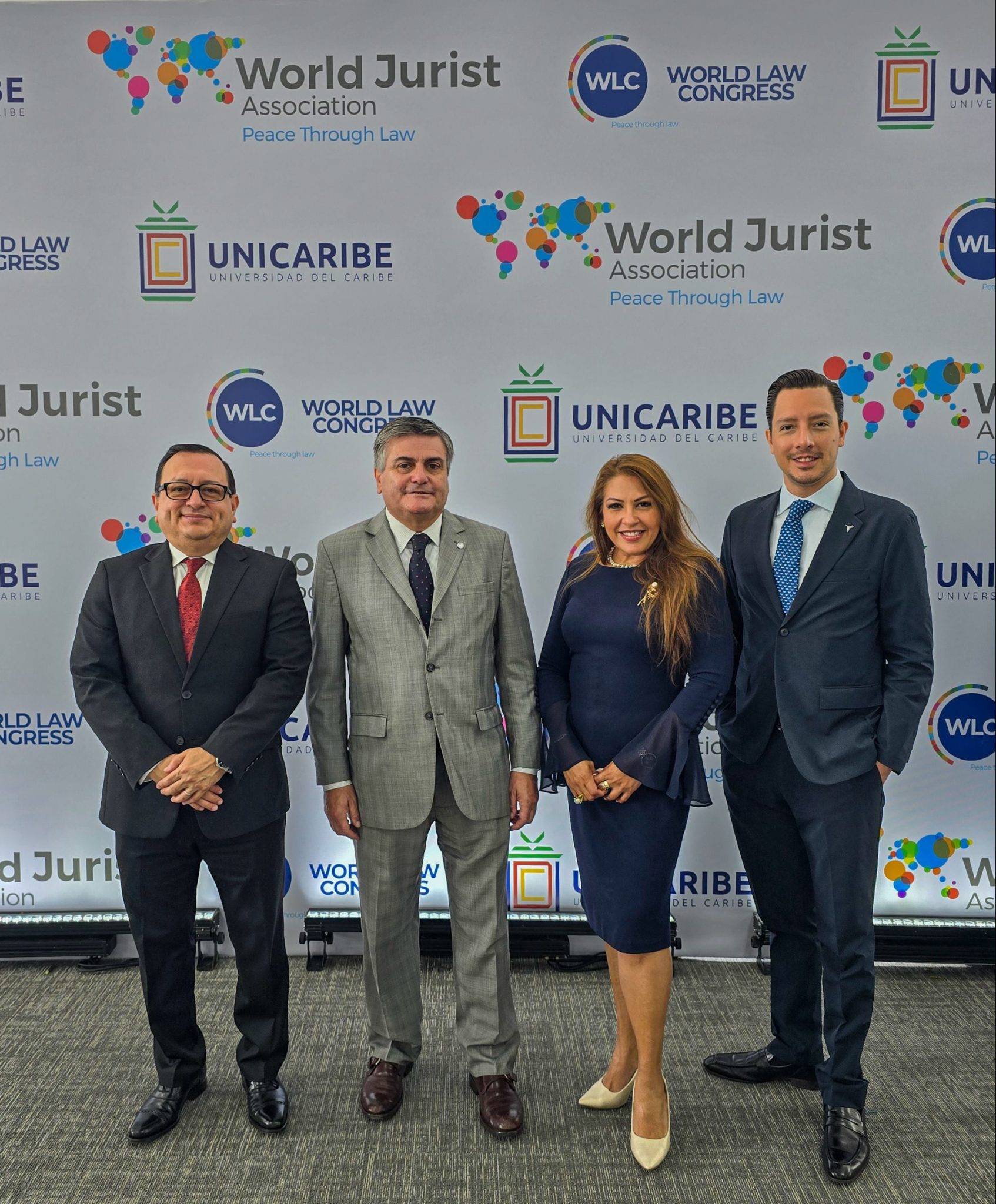
From left to right: Justice Roberto Calderón, Supreme Court of El Salvador; Judge Marcelo Gallo Tagle, President of FLAM; Judge Adriana Orocú, President of the Costa Rican Judicial Association, and Jaime Chávez Alor, Vance Center Executive Director. Photo credit: Vance Center
Consultation with the UN Special Rapporteur on the Independence of Judges and Lawyers
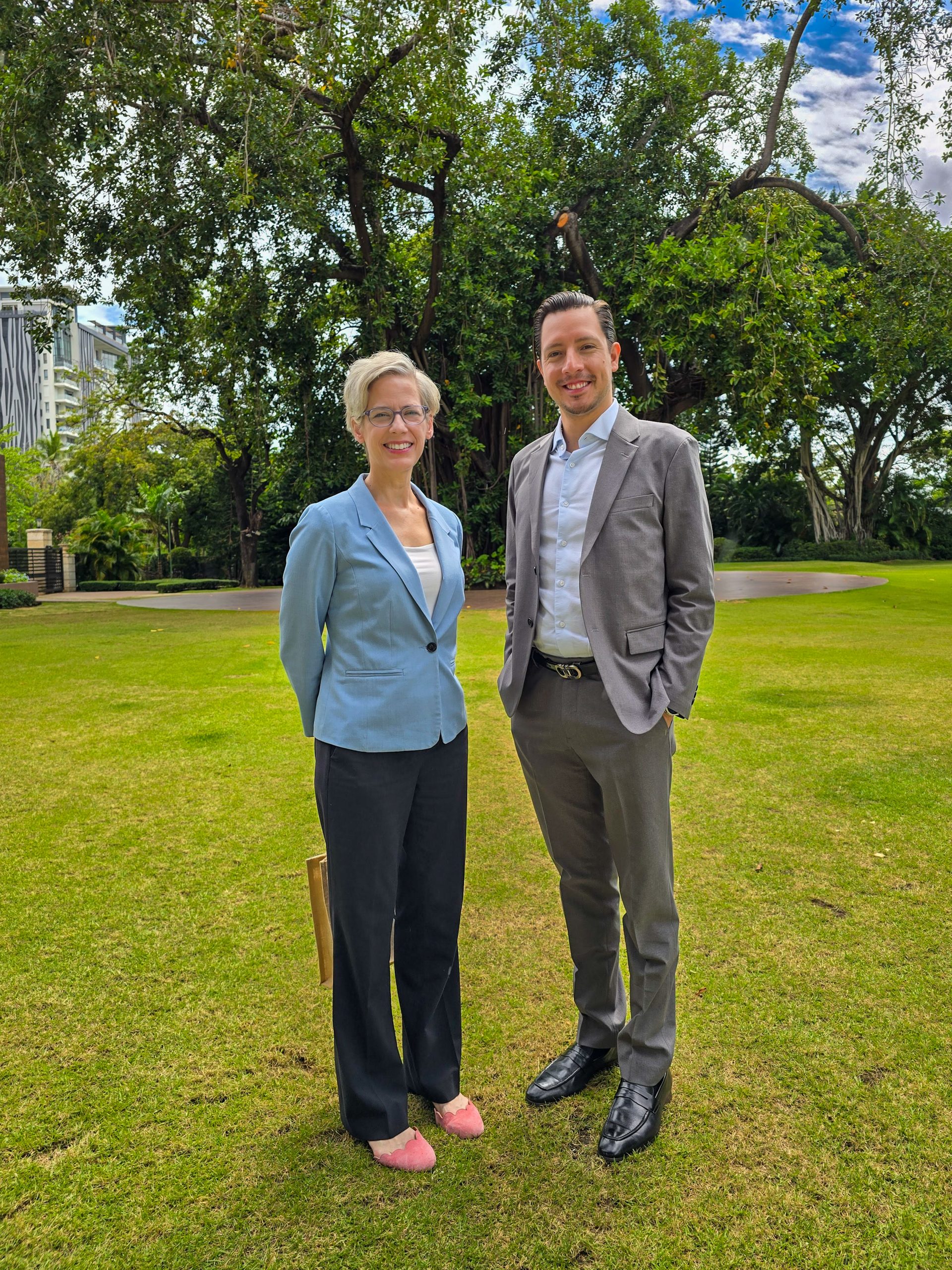
UN Special Rapporteur on the independence of judges and lawyers, Margaret Satterthwaite with Vance Center Associate Executive Director Jaime Chávez Alor. Photo credit: Vance Center.
Alongside the World Law Congress, the Vance Center organized a closed-door meeting between the UN Special Rapporteur on the independence of judges and lawyers, Margaret Satterthwaite, and representatives of judges’ associations from Chile, El Salvador, Argentina, Costa Rica, and the Dominican Republic.
Participating judges raised serious concerns about issues affecting the judiciary in their respective countries, including the lack of clear and objective rules for judicial promotion and transfers, inadequate physical security for judges facing threats, gender disparities in high courts, political interference, judicial vacancies, and precarious retirement conditions.
The judges and the Special Rapporteur acknowledged the importance of awareness-raising efforts like public statements and agreed to work closely together to develop targeted strategies to more effectively address these issues. The Rapporteur also thanked the Vance Center for facilitating the meeting and supporting ongoing efforts to strengthen judicial independence in the region.
Presentation of the Updated Judicial Independence Assessment
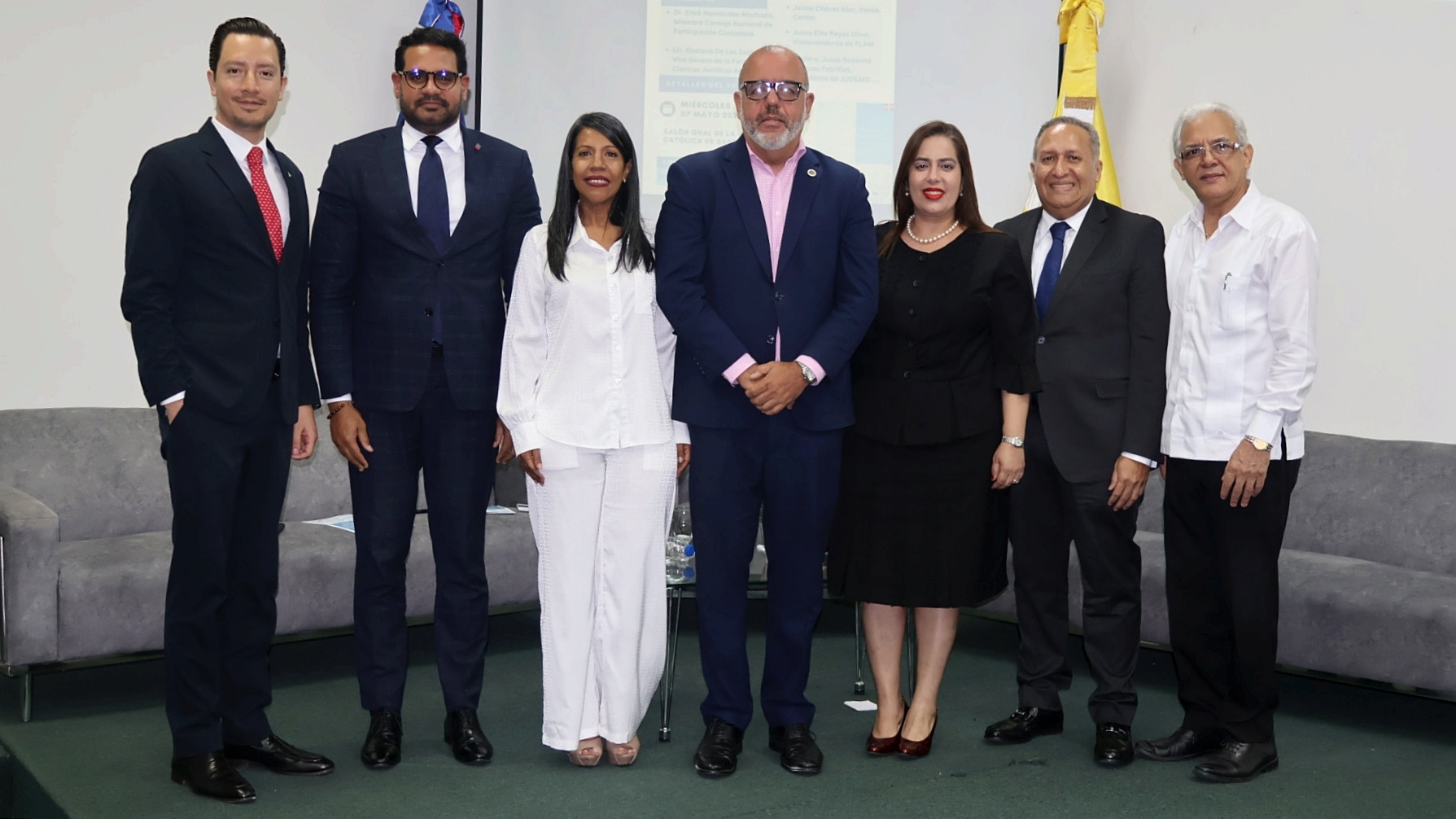
From left to right: Vance Center Executive Director Jaime Chávez Alor; Dominican Judge Amauris Marco Martínez; Judge Elka Reyes Olivo, Vice President of FLAM; Gustavo de los Santos Coll, Vice Dean of the Catholic University of Santo Domino’s School of Legal and Political Sciences; Judge Rosanna Vásequez Febrillet, President of the Association of Dominican Judges for Democracy; Dr. Erick Hernández Machado, National Council for Citizen Participation; and Dominican Judge Sergio Ortega. Photo credit: Vance Center
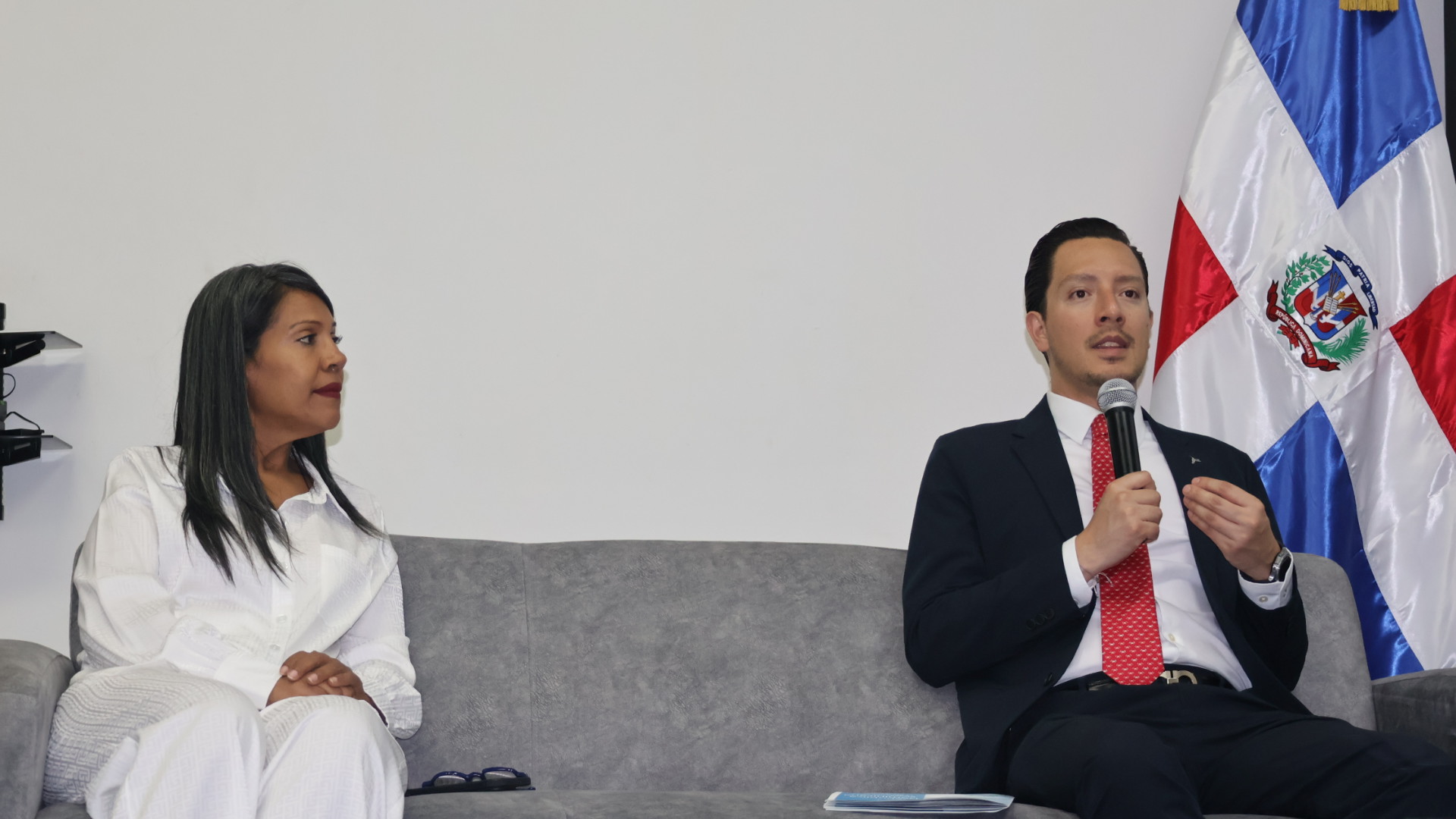
Vance Center Associate Executive Director Jaime Chávez Alor presents the updated judicial independence assessment for the Dominican Republic alongside FLAM Vice President Judge Elka Reyes Olivo. Photo credit: Vance Center
On May 7, as a complement to the World Law Congress activities, the Vance Center, along with the Association of Dominican Judges for Democracy and the Catholic University of Santo Domingo, co-hosted a public forum at the university’s Oval Hall to present its latest Judicial Independence Assessment for the Dominican Republic.
The session, moderated by Judge Rosanna Vásquez Febrillet, featured remarks by Dr. Erick Hernández Machado of the National Council for Citizen Participation; Gustavo de los Santos Coll, Vice Dean of the university’s School of Legal and Political Sciences; Judge Elka Reyes Olivo. Jaime Chávez Alor presented the assessment on behalf of the Vance Center.
The presentation outlined progress and persistent challenges within the Dominican judiciary. Chávez Alor highlighted concerns around Constitutional Court Judgment TC/0787/24, a decision from late 2024 that repealed regulations supporting a merit-based promotion system for judges, undermining a key element of professionalization of the judiciary.
The assessment also pointed to positive developments, including the judiciary’s adoption of a Data Protection Policy to safeguard privacy in court proceedings and the amendment of the Disciplinary Regulation for Judges, which now offers greater clarity in procedural standards to reduce the risk of arbitrary disciplinary actions.
Expanding Pro Bono Legal Services in the Dominican Republic
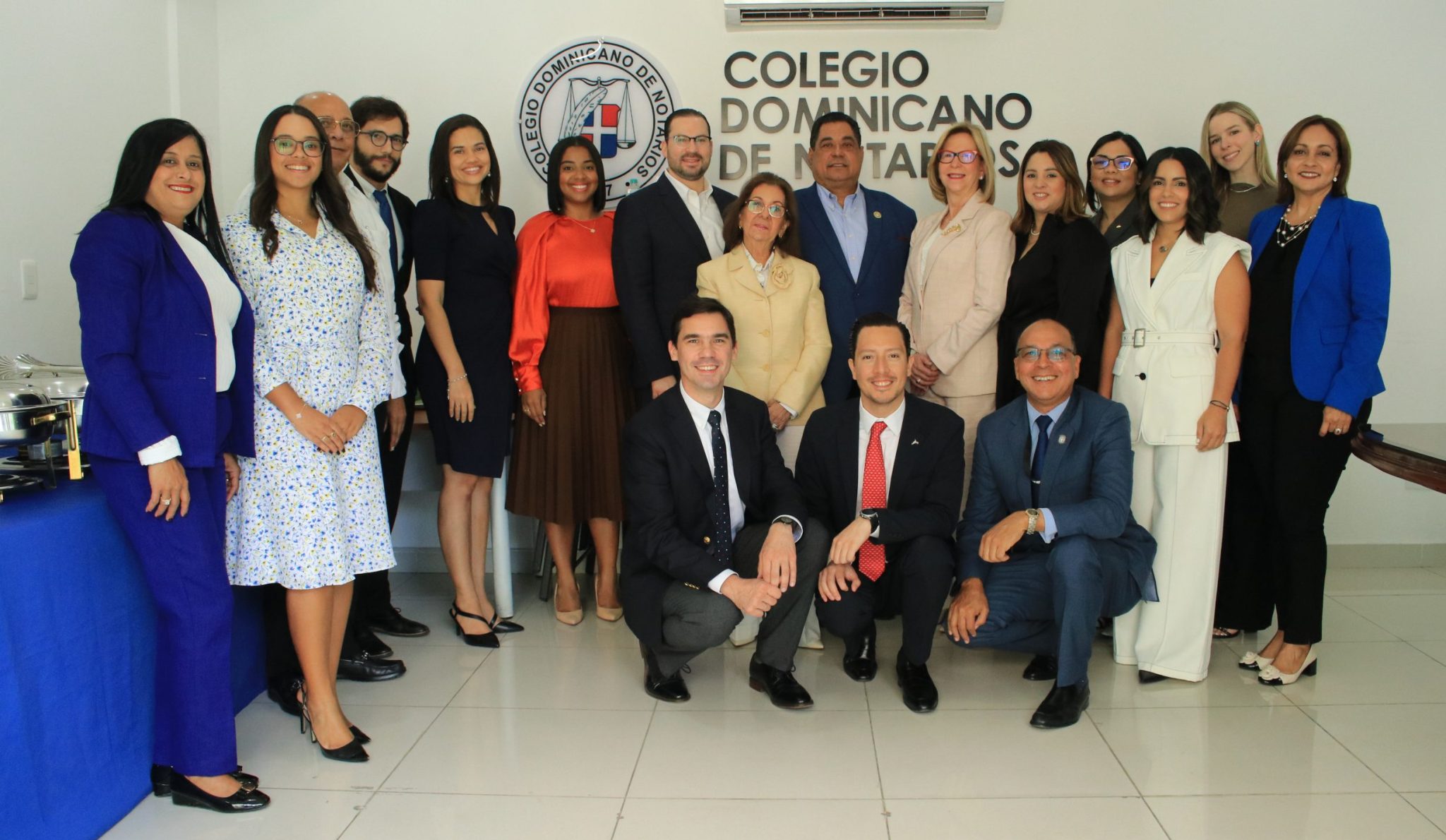
The Vance Center and Fundación Pro Bono Dominican Republic members met with law firm representatives to discuss improved pro bono service delivery at the Notary Public Association in Santo Domingo, Dominican Republic. Photo credit: Vance Center
As part of ongoing efforts to support access to justice in the region, the Vance Center also facilitated a strategic meeting with Fundación Pro Bono Dominican Republic to define pathways to strengthen the foundation and expand its reach.
Chávez Alor and Ignacio Obando, the co-coordinators of the Pro Bono Network of the Americas, joined Fundación Pro Bono Dominican Republic Director Teofilo Rosario, in convening representatives from leading law firms in the country. The meeting, held at the Notary Public Association in Santo Domingo, focused on plans to restructure Fundación Pro Bono Dominican Republic, grow its law firm membership, and deepen its service to underrepresented groups and civil society organizations across the country.
Participants included representatives from Headrick Rizik Alvarez & Fernandez; Russin, Vecchi & Heredia, Bonetti; Medina Garnes Abogados; Ulises Cabrera; Jorge Prats, Abogados & Consultores; Olivero Rodríguez & Asociados; Lextratega Servicios de Consultoria; Forlex Firma Consultora; and Jiménez Peña.
The discussion underscored the crucial role of law firm commitment and the importance of drawing on best practices from other Latin American clearinghouses to foster a stronger network of pro bono service delivery. By strengthening its national pro bono infrastructure, Fundación Pro Bono Dominican Republic aims to deliver more impactful legal support for marginalized communities, supporting greater social justice and equitable access to legal resources throughout the country.


